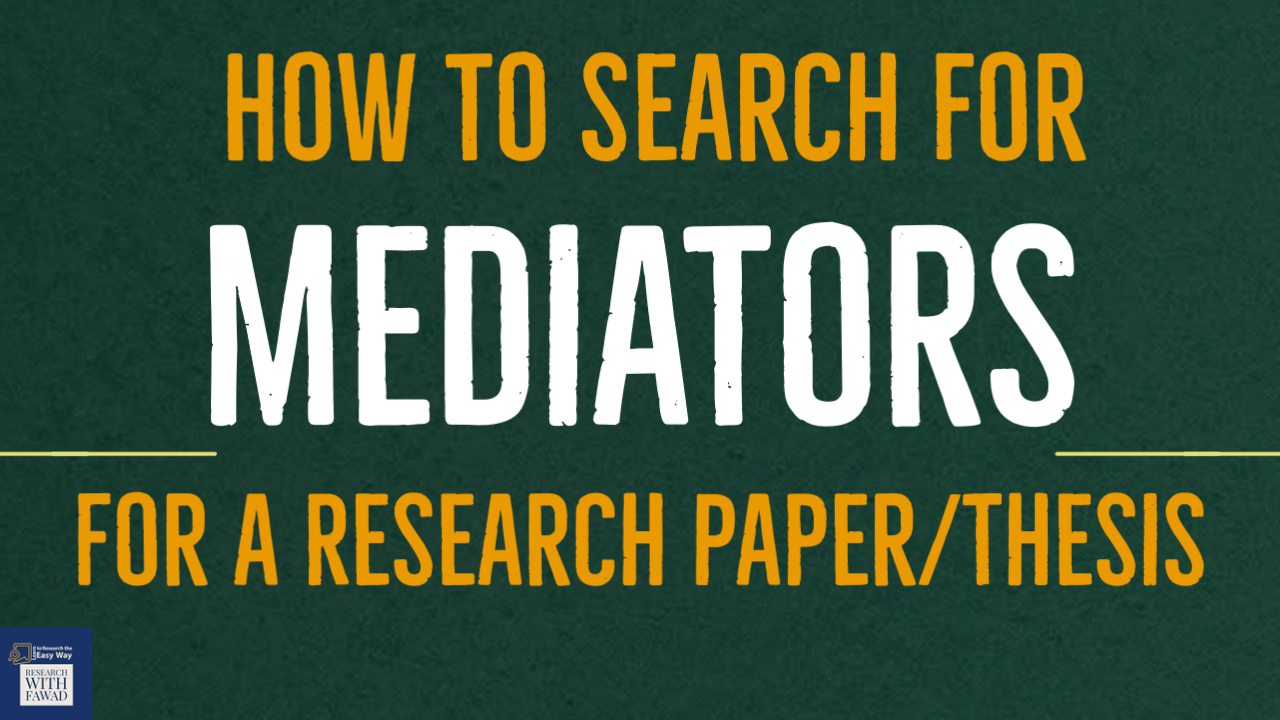How to Search Mediators for a Study
Learn to find new Mediators for a Study to design a complex research model.

Find New Mediators
The focus on the session is on guiding research scholars to find new mediators for their study to design and develop a more complex and original research study.
Exploring Mediators for Research Papers and Theses
Steps to Find New Mediators for Research
Understanding the role of mediators in research is crucial for enhancing the complexity of your models and providing deeper insights into variable relationships. A mediator, acts as a variable that intervenes in a relationship, elucidating how one variable influences another. In essence, it helps explain the mechanism by which an independent variable (e.g., x) impacts a dependent variable (e.g., y). The inclusion of mediators in models adds complexity, contributing to a more comprehensive understanding of the research context.
The Significance of Mediators
When delving into research papers or theses, one often encounters gaps in knowledge regarding the mechanisms through which certain variables influence each other. This gap becomes an opportunity to explore new mediators and contribute to the existing body of literature. The inclusion of mediators aids in explaining the impact of independent variables on dependent variables and can be a substantial contribution to the field.
Identifying Mediators
One effective approach to identifying potential mediators is to examine limitations and future research directions in existing studies. Researchers frequently recommend new mediators that could further enrich the understanding of variable relationships. It’s advisable not to rely solely on one study; instead, explore multiple studies to diversify your mediator pool and avoid redundancy.
Leveraging Existing Research
For instance, if a study recommends a mediator, such as “knowledge-oriented leadership,” and suggests its impact on organizational performance, broaden your search. Look for studies assessing the influence of knowledge-oriented leadership on various outcomes like trust, knowledge sabotage behavior, or employee loyalty. These variables, although not initially recommended as mediators, may play a role in explaining the relationship between your independent and dependent variables.
Establishing Mediator Viability
To establish the viability of potential mediators, scrutinize existing literature for evidence of their influence on the dependent variable. If there is supporting evidence, these variables can serve as valuable mediators in your research. Additionally, if literature on your independent variable is scarce, consider exploring theories related to leadership styles or the conceptualization of relevant variables to establish potential links.
Conclusion
In summary, the process of searching for new mediators involves a systematic approach. Begin by exploring future research directions, identify variables recommended in existing studies, and expand your scope by exploring related variables influenced by your independent variable. Reading extensively on these variables and delving into relevant theories will provide a solid foundation for selecting meaningful mediators. This strategic approach ensures a well-rounded exploration of mediators, contributing to the depth and complexity of your research models.